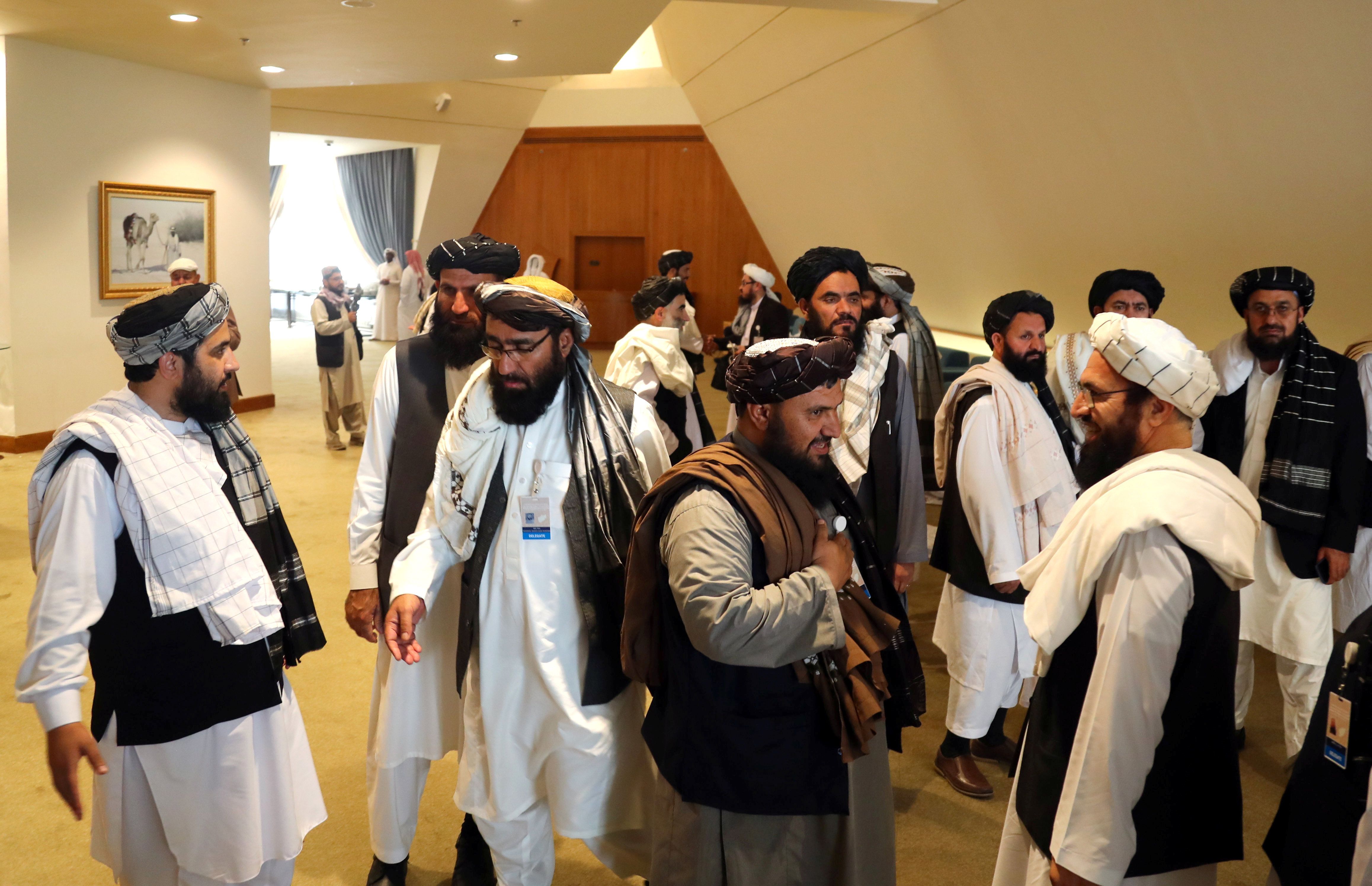March 02, 2020
For almost twenty years, US and NATO-allied troops have fought to root out a resurgent Taliban and to prop up the fragile, democratically elected Afghan government.
Now, after nearly two years of negotiations, the Trump administration has struck a deal with the Taliban – who still control vast swathes of the country – to end US involvement in the country altogether.
Whether the deal brings peace, and at what price for Afghans who have suffered the scourge of conflict for almost four decades, remains to be seen.
What's in the deal? The US is to withdraw all of its roughly 12,000 remaining troops by April 2021 and will work with the UN to lift sanctions on the Taliban. About two-thirds of those troops are to leave within six months.
In return, the Taliban have promised to cut ties with global terrorist groups and begin substantive power-sharing talks with the Afghan government. Crucially, the deal envisions the release of some 5,000 Taliban fighters currently imprisoned in Afghan jails in exchange for about 1,000 Afghan prisoners held by the rebel group.
How's the peace deal doing so far? Not so great. By Monday, the Afghan government – which the Taliban insisted on excluding from the talks – had refused to release those 5,000 prisoners. The Taliban responded that unless that happens, they won't sit down with the Afghan government after all. Following a weeklong ceasefire that brought a lull in fighting, fresh clashes erupted between the Taliban and Afghan forces yesterday. The deal isn't dead, but it's not off to a promising start.
Can the deal work? Even if the prisoner swap can be finessed, it's unclear how much the Taliban can be trusted to cut ties with groups like Al-Qaeda, with whom they share both ideological and operational ties. A bigger question is whether the Taliban is willing to engage in good-faith negotiations with the Afghan government, over whom it would hold tremendous leverage as US troops depart.
What would US departure mean for Afghan society? The last time the Taliban ran Afghanistan, in the 1990s, it imposed an extreme interpretation of Islamic law that limited freedoms and harshly oppressed women and girls in particular. Even today, Afghanistan is one of the most dangerous places in the world to be a woman. In more recent years, at least in the areas under Afghan government control, women have enjoyed much greater freedoms in education and public life. If the Taliban formally become part of the country's government, there is no guarantee that those rights and freedoms – not only for women, but more broadly for society – would be preserved.
Is this deal a defeat for the US? The Taliban certainly think so. Their social media mullah last week crowed about "the defeat of the arrogance of the White House in the face of the White Turban." But President Donald Trump has pledged, with a lot of popular support among a war-weary public, to be the guy who ends the longest war in America's history. He's obviously keen to get that done before election day, as any president would be.
What is the US responsibility? Even if you believe that the Trump administration is beating a politically motivated retreat that will leave Afghan society worse off, fundamental questions remain.
What's the better option? Is it the US responsibility to use its troops to protect human rights in Afghanistan? If so, at what cost? How many more years should the US fight the Taliban in their home ground?
More For You
- YouTube
GZERO World heads to the World Economic Forum in Davos, where Ian Bremmer lookst at how President Trump’s second term is rattling Europe, reshaping both transatlantic relations and the global economy, with Finland’s President Alexander Stubb and the IMF’s Kristalina Georgieva.
Most Popular
Think you know what's going on around the world? Here's your chance to prove it.
- YouTube
How widely is AI actually being used, and where is adoption falling behind? Speaking at the 2026 World Economic Forum in Davos, Brad Smith, Vice Chair and President of Microsoft, outlined how AI adoption can be measured through what he calls a “diffusion index.”
U.S. President Donald Trump holds a bilateral meeting with NATO Secretary General Mark Rutte at the World Economic Forum (WEF) in Davos, Switzerland, January 21, 2026.
REUTERS/Jonathan Ernst
After saying numerous times that he would only accept a deal that puts Greenland under US control, President Donald Trump emerged from his meeting with NATO Secretary General Mark Rutte singing a different tune.
© 2025 GZERO Media. All Rights Reserved | A Eurasia Group media company.
